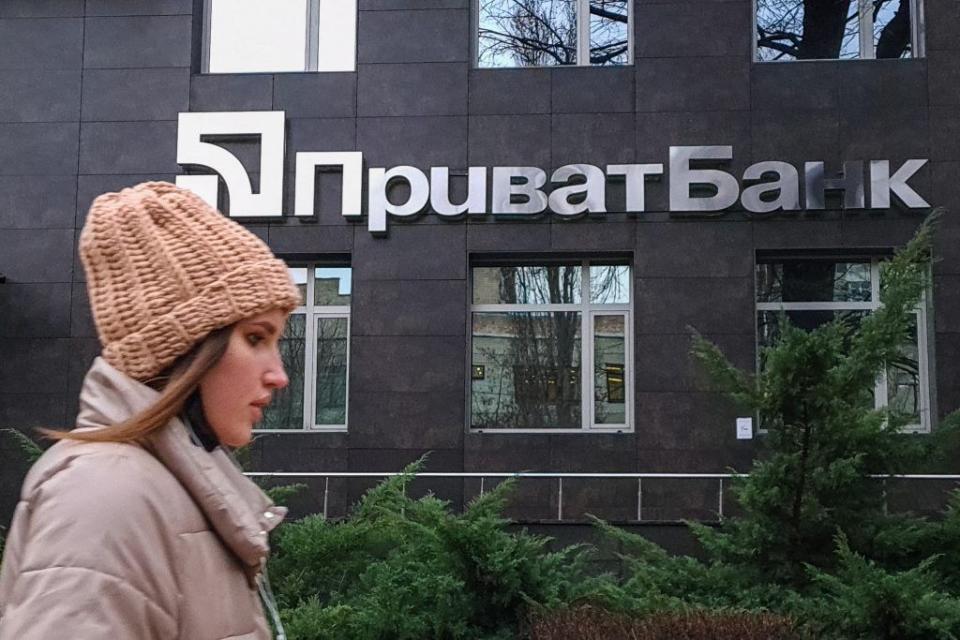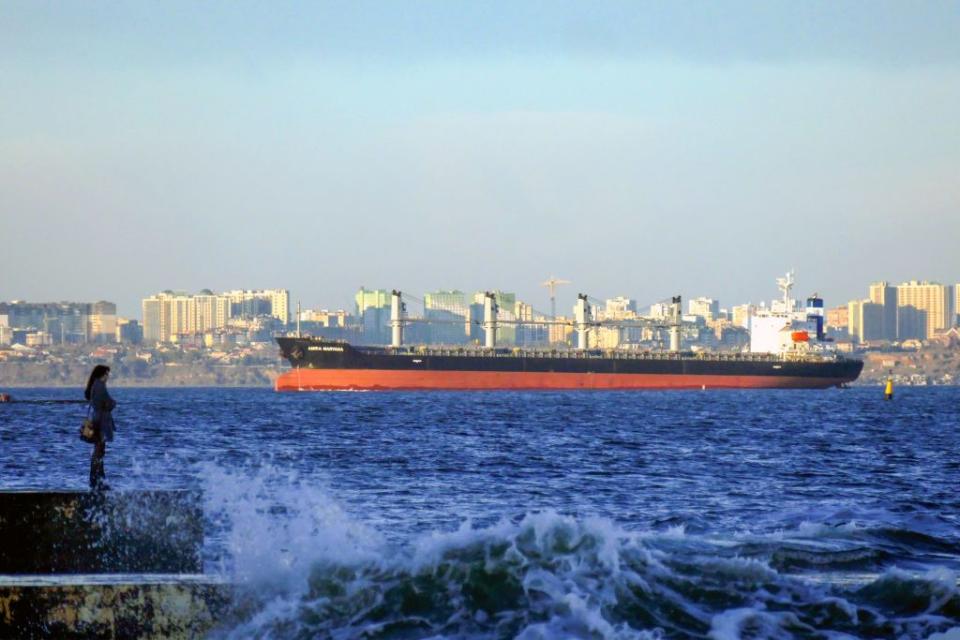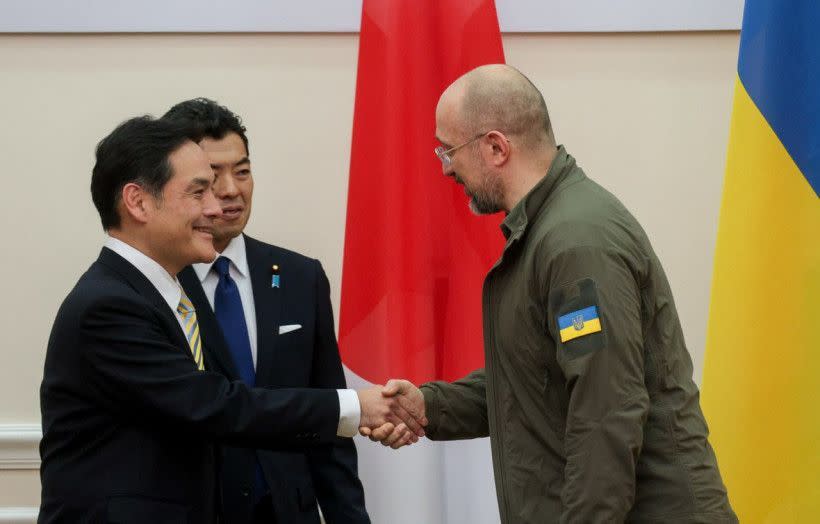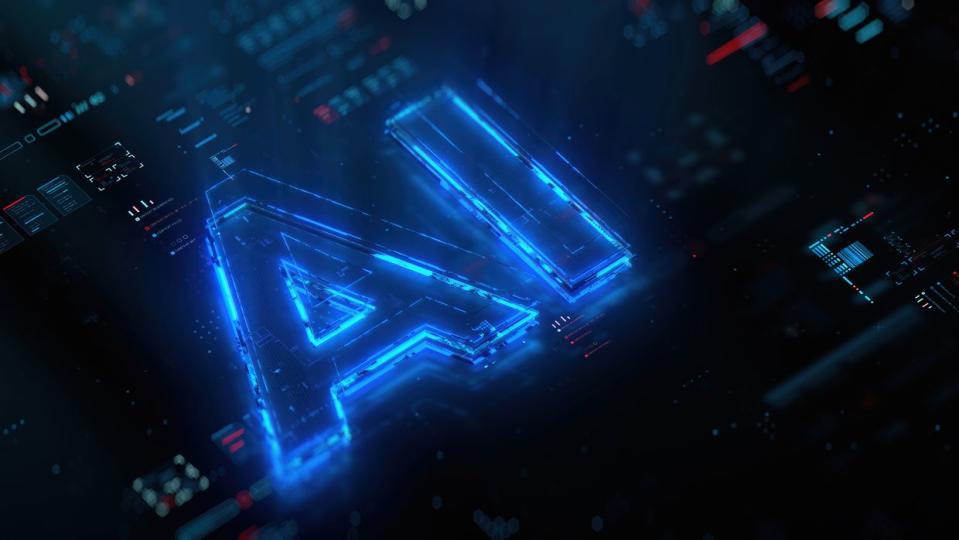Ukraine Business Roundup — November 21
The following is the Nov. 21, 2023 edition of our Ukraine Business Roundup weekly newsletter. To get the biggest news in business and tech from Ukraine directly in your inbox, subscribe here.
Persisting protests
Polish protests blocking three major Poland-Ukraine border crossings have now stretched into their third week, negotiations are going nowhere, and there is an increasing risk that the protests are going to spread to other EU countries that border Ukraine.
If you haven’t been following closely, on Nov. 7 a group of Polish truckers began blocking Ukrainian haulers wanting to enter Poland. They claim the high number of Ukrainian drivers entering Poland spurred by an EU decision to suspend transport permits for Ukraine last year is undercutting local businesses.
And a quick resolution appears unlikely, writes reporter Dominic Culverwell in his latest article for the Kyiv Independent. As the Ukrainian side repudiates the Polish protesters' complaints, analysts in Poland say that there is likely broad support in Poland for reinstating EU permits and restoring a level playing field.
Ukrainian officials and industry representatives vehemently deny the protesters’ claims.
Ukraine’s Ambassador to Poland Vasyl Zvarych has called the protests a “stab in the back,” while Volodymyr Balin, vice president of the Association of International Car Carriers of Ukraine (AsMAP) told the Kyiv Independent that he is “categorically against the fact that we are undermining local businesses in Poland.”
Meanwhile, many Polish companies are likely to share the same sentiment as the Polish truckers, says Sebastian Stodolak, vice-president of the Warsaw Enterprise Institute think tank.
“The protesters' demands boil down to restoring the system of protection of the EU's internal market against external competition. Referring to the need to introduce fair rules, a level playing field, and symmetry in relations with Ukraine is very appealing to citizens.”
Read the full article here.

Case closed
A Ukrainian appeals court ruled this past week that you can’t just claim the country’s top bank after the government took it away from you and invested years and billions to undo the damage from your money laundering scheme.
Especially when you’re sanctioned, in jail on fraud charges, possibly stripped of Ukrainian citizenship, and by the way, U.S. justice really wants a word.
Yes, it’s another setback for old Ihor Kolomoisky, once Ukraine’s most flamboyant oligarch, whom most journalists couldn’t help but enjoy covering. He’s not so much fun anymore, now that he’s sitting under a half-dozen different swords of Damocles and knows better than to open his mouth.
The sixth appellate court’s decision reverses a 2019 ruling that found PrivatBank’s 2016 nationalization illegal. Since then, Zelensky’s party passed a law that seized banks can’t be given back regardless — the best you can hope for is money equal to a fraction of your assets.
Kolomoisky and PrivatBank are also fighting pitched court battles over assets in the U.K., the U.S., Israel, Cyprus, and Switzerland.
Years ago, the prospect of his victory seemed like a much bigger concern. But Kolomoisky is a shadow of his former self. We don’t know how hard he’s going to get punished when the day comes. But he’s certainly not getting back any of his old wealth and power.
Still, despite allegedly stealing billions of dollars, he left something of value in this world. For Ukraine, PrivatBank is a top economic contributor, success story, and poster child for the feasibility of reforms.
This section was brought to you by Kyiv Independent reporter Igor Kossov.
Insurance for ships

Ukraine launched an insurance program with broker Marsh McLennan and Lloyd’s of London on Nov. 14 to cover grain vessels leaving Ukraine's deep-sea port, just days after a foreign cargo ship was struck by a Russian missile.
Ukraine’s first Deputy Prime Minister and Economy Minister Yulia Svyrydenko said the $50 million ship insurance fund would protect ships against military risks.
“The program will start after signing all the necessary contracts with the parties. We expect that this may happen in the coming week," Economy Minister Yuliia Svyrydenko told Forbes Ukraine.
Forbes also reported, however, that the details around how exactly the insurance program will work in practice are still unclear, with the Economy Ministry so far not providing specifics.
The program envisions that the risk will be shared between insurers and local banks, Deputy Minister of Economy Volodymyr Kuzyo told Forbes. Ukraine’s Export Credit Agency, state-owned Ukrgasbank, Ukreximbank, and a pool of 14 English insurance companies are involved in the fund.
The Export Credit Agency said it has already received about $22 million from Ukraine’s reserve fund, according to Forbes. Ukrainian state banks will be able to provide letters of credit to the shipowner, which will be a guarantee of covering possible damage.
According to the agreements, British insurers are ready to provide the remaining $30 million in the event of an emergency, a person familiar with the agreement process who spoke on condition of anonymity, told Forbes.
Help from Japan

A delegation of Japanese officials and business representatives, including Foreign Minister Kiyoto Tsuji, Industry Minister Kazuchika Iwata, and members of Keidanren — Japan's largest business lobby — arrived in Kyiv on Nov. 20 to meet with Ukrainian officials ahead of a reconstruction conference Japan will host.
In the words of Ukrainian Prime Minister Denys Shmyhal, who met with the group yesterday, "Japan's experience in post-war reconstruction could be useful for the economic recovery of Ukraine."
The delegation was in Kyiv "to directly hear the needs of the Ukrainian side, formulate concrete projects with the Ukrainian side, and to work together with the public and private sectors to provide assistance to Ukraine," according to the Japanese Industry Ministry.
Japan will host a conference promoting Ukraine's economic reconstruction on Feb. 19 next year, as agreed between President Volodymyr Zelensky and Japanese Prime Minister Fumio Kishida in May during a G7 summit.
Following the meeting with the prime minister, Shmyhal’s office announced that Japan plans to allocate 160 million euros ($175 million) to finance Ukraine's economic recovery projects.
"Ukraine is interested in creating joint ventures (with Japan), especially in the processing industry. Cooperation in the fields of agriculture, metalworking, mechanical engineering, critical raw materials, and IT is important for us," Shmyhal said.
Artificial intelligence

Since artificial intelligence (AI) is all over the news right now after the board at OpenAI, the maker of ChatGPT, unexpectedly fired CEO Sam Altman, I thought I’d bring you some Ukraine-related AI news.
Flyer One Ventures, an early-stage VC firm with roots in Ukraine, was among the investors who participated in a $1 million funding round backing the NYC–based startup Scalestack, whose tool makes it easier for businesses to collect data online on existing and potential customers with the help of AI.
The round also saw participation from Ripple Ventures, Forum Ventures, the Founders Network Fund, and notable angel investors, including leaders in sales ops, serial B2B entrepreneurs, and executives at Salesforce. Flyer One Ventures was the only Ukrainian investor.
The startup was co-founded in 2022 by Elio Narciso. Before Scalestack, Narciso sold two other companies he founded, ad-tech platform Mobave and mobile content company Zero. He was also previously director of business development at Amazon Web Services.
"The AI sales market is projected at $93 billion by 2032. Currently, however, most companies in this industry offer tools aimed at the bottom of the sales funnel, which means businesses still have to manually enter prospect data into the system," Vital Laptenok, general partner at Flyer One Ventures, said in a comment for this newsletter.
"Scalestack is fixing this discrepancy. By automating the top of the sales funnel, it helps sales representatives be much more productive during the first critical stage — targeting. This, along with the impressive experience of the co-founders, strategic hiring, and a clear vision, were the main reasons why we decided to support the team," Laptenok said.
What else is happening
Energy giant DTEK calls for more air defense systems as winter looms. Ukraine needs more powerful air defense systems, such as Patriot and IRIS-T air defense systems, to better protect its critical infrastructure from Russian attacks, Maksym Timchenko, CEO of Ukraine's largest private energy company DTEK, said on Nov. 17. In an interview with Reuters in Warsaw, Timchenko said his country needs more of these Western-made systems for the safer operation of power plants as Russia continues to target energy sites in Ukraine.
New natural gas deposit discovered in Carpathians, Naftogaz says. Naftogaz, Ukraine's state-owned oil and gas giant, said on Nov. 17 that a new natural gas deposit was discovered in the Carpathians, offering what could be a promising outlook for Ukraine's domestic gas production amid war. Naftogaz's production branch Ukrgasvydobuvannya discovered a well in a field that was thought to be depleted in the western Zakarpattia Oblast, according to a statement published on the company's website.
Economic Security Bureau: 'More than 20% of grain exported through high-risk channels.' More than 20% of grain exported over the past nine months went through black market or risky informal channels, Ukraine's Bureau of Economic Security said on Nov. 16. The total export value of that grain is Hr 144 billion ($3.9 billion). One of the primary forms of these high-risk channels involves grain that is sold for cash to recently created shell companies, often with falsified documents, which is then resold several times through different buyers. Through this method, grain can be sold without customs documents and also without paying tax to the Ukrainian government.
Forbes: Canada lifts sanctions on Russian billionaire following lawsuit. Canada's foreign ministry agreed to remove sanctions against Russian billionaire businessman Oleg Boyko after he filed a lawsuit, Forbes Russia said on Nov. 16. Boyko was originally sanctioned related to Russia's war on Ukraine, but the specific reasons were not made public. He is sanctioned by Ukraine for doing business in sectors of the Russian economy that help generate funding for the war effort, Ukraine's National Agency on Corruption Prevention (NACP) wrote on its website.
Media: Ukrainian oligarch Akhmetov borrowed $400 million from Russian bank. Ukraine's richest man Rinat Akhmetov transferred liability for a $400 million loan from Sberbank to a Cyprus-based subsidiary through his ownership of the Ukrainian energy giant DTEK, the International Consortium of Investigative Journalists (ICIJ) said on Nov. 14, citing information obtained from leaked documents dubbed "Cyprus Confidential." In response to the investigation, Akhmetov issued a statement to ICIJ saying that the loans provided by Sberbank and others before Russia's illegal annexation of Crimea in 2014 were "standard practice for Ukrainian borrowers."
Subscribe to the Newsletter
Ukraine Business Roundup
We’ve been working hard to bring you independent, locally-sourced news from Ukraine. Consider supporting the Kyiv Independent.

